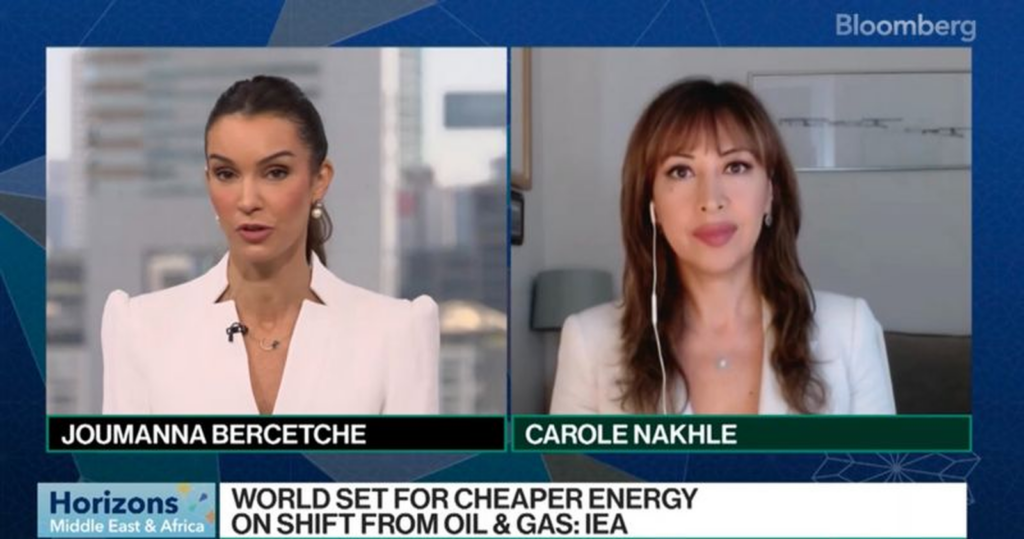In this interview with Joumana Berteche from Bloomberg TV, Dr. Carole Nakhle, CEO of Crystol Energy, discusses key insights from the 2024 IEA World Energy Outlook (WEO 2024) and the ongoing discrepancies between IEA and OPEC on oil demand forecasts.

Key takeaways:
– In its 2024 WEO, the IEA forecasts peak fossil fuel demand by 2030, though these are scenarios dependent on uncertain policies. A peak does not mean the end of fossil fuels; demand could plateau for years, with a slow decline.
– The wide range of assumptions—mainly regarding policies, which are, as the IEA states, facing more uncertainty than usual—leads to significantly different outcomes.
– The outlook for oil exporters does not depend only on their production costs but also on their carbon intensity. In a climate-conscious world, low-carbon production will be critical.
– The second half of the 2020s may see excess oil and gas supplies, pushing prices lower. This could lead to prolonged lower prices and altered investment strategies.
– OPEC has downgraded its forecast for three consecutive months. Still, gap with the IEA remains around 1 Mb/d.
– Despite geopolitical tensions in the Middle East, no supply disruptions have occured.
– In the event of a worsening geopolitical outlook, price spikes are possible. However, the key question is not how high prices will go, but how long we would remain in the high prices territory.
Related Analysis
“Oil markets: Relative stability amid geopolitical strife“, Dr Carole Nakhle, Feb 2024
Related Comments
“Reasons for the decline in oil prices“, Dr Carole Nakhle, Aug 2024
“Growth outside OPEC+ robust“, Dr Carole Nakhle, Jul 2024








